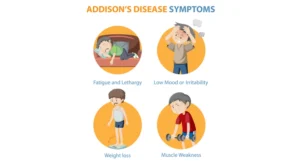Tips on How to Sleep with A Stuffy Nose
By TOI Staff
February 26, 2023
Update on : February 26, 2023

A stuffy nose can be a real nuisance, especially when it comes to getting a good night’s sleep. Not only is it hard to breathe through your nose when it’s congested, but you may also experience difficulty shifting positions or maintaining comfortable temperatures in bed. If you find yourself battling a stuffy nose and need help getting some restful shut-eye, here are some tips on how to sleep with a stuffy nose that may be able to help.
Drink Lots Of Fluids
When you have a stuffy nose, it can be difficult to get a good night’s sleep. Drinking lots of fluids can help thin the mucus in your nose and make it easier to breathe. Try to drink plenty of water, juice, and herbal tea throughout the day. Avoid caffeine and alcohol, which can make your symptoms worse.
If you’re having trouble getting a good night’s sleep, try using a humidifier in your bedroom. This can help add moisture to the air and make it easier to breathe at night. You can also use an over-the-counter nasal decongestant or saline spray to help clear your nasal passages.
Sleep On Your Side
When you have a stuffy nose, it can be difficult to get a good night’s sleep. However, there are a few things you can do to make it easier. First, try sleeping on your side. This will help to keep your airway open and prevent you from snoring. If you find that your nose is still blocked when you wake up, try using a humidifier to keep the air moist. This will help to clear your nasal passages and make it easier to breathe.
If you find that sleeping on your side isn’t helping, it may be time to try something else. Nasal strips can help to open up your airways and make it easier to breathe. A saline spray can also help to clear out any blockages in your nasal passages. If you are still having difficulty breathing, talk to your doctor about medications or other treatments that might help.
Keep Your Head Elevated
When you have a stuffy nose, it can be difficult to get a good night’s sleep. However, there are some things you can do to make it easier.
- One of the most important ways to avoid a stuffy nose is to keep your head elevated. This will help to drain the mucus from your sinuses and prevent them from becoming blocked. You can prop up your head with pillows or use a special pillow that elevates your head and neck.
- Another thing to do is to drink plenty of fluids.
- Finally, try using a humidifier in your bedroom. This will add moisture to the air and help to keep your nose from becoming dry and irritated. By keeping your head elevated and promoting drainage, you can help to reduce congestion and get a more restful sleep.
Breathe Through Your Mouth
If you have a stuffy nose, the best way to sleep is by breathing through your mouth. This will help to clear your nasal passages and make it easier to breathe. You may also want to prop up your head with a pillow to help keep your airway clear. Drink plenty of fluids during the day to keep your mucus thin and flowing. And avoid drinking alcohol before bed, as it can make congestion worse.
Also, breathing through the mouth can cause drooling while being asleep in some patients. So, there are also ways to stop drooling while sleeping.
If you’re still having difficulty breathing, you may want to try a saline nasal spray or decongestant to help open up your airways. If your nose is still too congested for mouth breathing, you can try using a nasal dilator or decongestant spray before bed.
Check For Allergies
If you have allergies, you may be more likely to experience congestion and a stuffy nose at night. To help reduce your symptoms, take an antihistamine before bedtime and keep your bedroom free of dust and pollen. You may also want to use a humidifier to keep the air in your room moist. It is also important to talk to your doctor about possible food allergies or other triggers that you may have.
Your doctor may recommend avoiding certain foods and drinks before bed, such as alcohol and caffeine. Finally, make sure to practice good hygiene, such as washing your sheets and pillowcases often. If your symptoms do not improve after trying these measures, you should see your doctor. Your doctor can test you for allergies and prescribe medication to help reduce your symptoms.
Conclusion
Sleeping with a stuffy nose can be difficult, but it’s not impossible. By following the tips outlined in this article, you should be able to find ways to get a better night’s sleep despite your stuffy nose. From using nasal spray or decongestants before bedtime to propping yourself up on pillows and staying hydrated throughout the day, there are several things that you can do to make sleeping with a stuffy nose much more comfortable and easier. Don’t let your discomfort keep you from getting the restful sleep that you need!

















